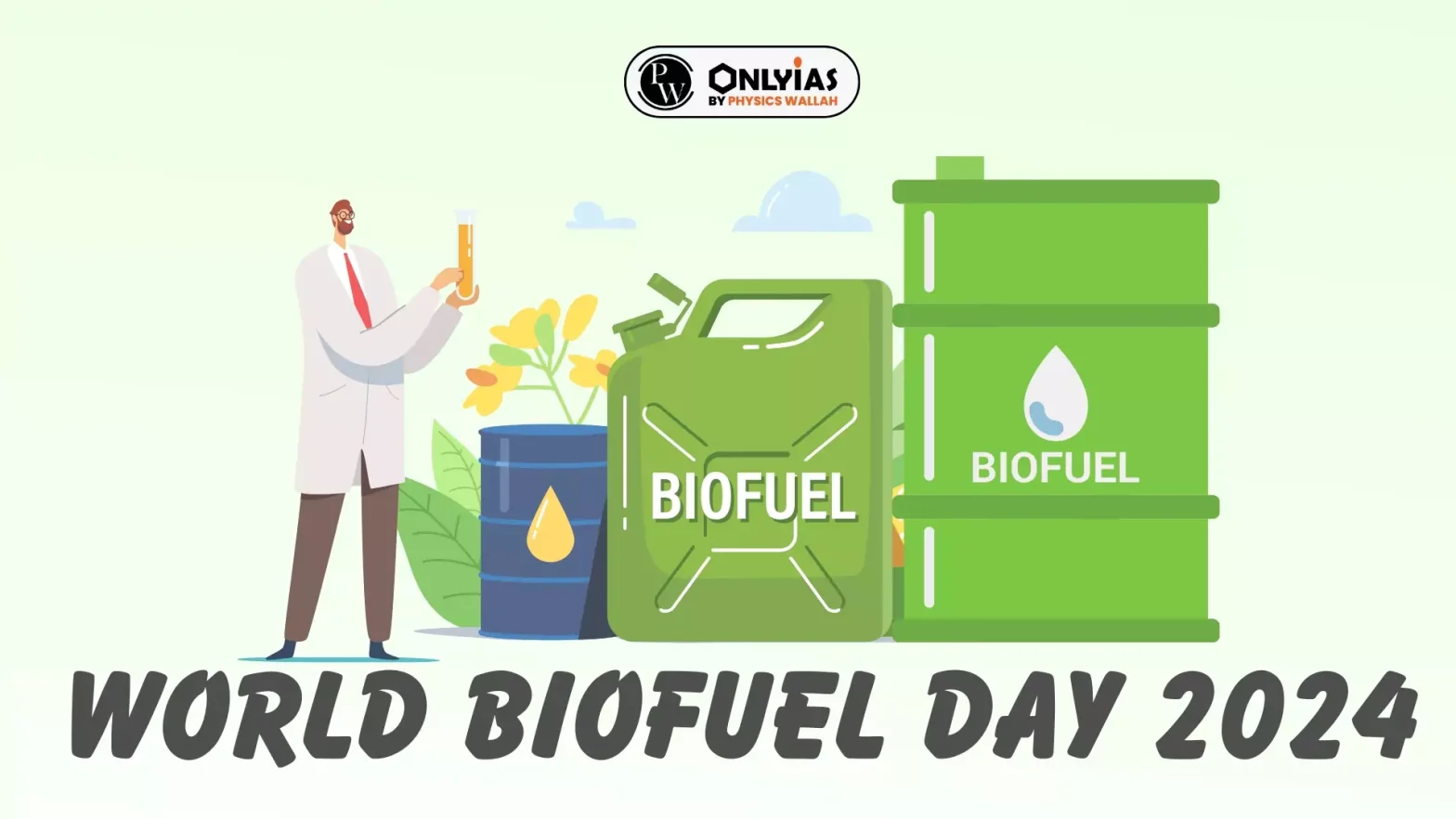World Biofuel Day on August 10th emphasizes the importance of biofuels in reducing carbon emissions, enhancing energy security, and promoting sustainable development. Learn about India's National Biofuels Policy, global initiatives, and advancements in biofuel technologies.

World Biofuel Day is observed annually on August 10th to raise awareness about the significance of biofuels as an alternative to conventional fossil fuels. As we approach World Biofuel Day 2024, it is essential to understand the role biofuels play in reducing carbon emissions and promoting energy security. This day serves as a platform to highlight the advancements in biofuel technologies and the policies supporting their adoption globally and in India.
World Biofuel Day is celebrated annually on August 10th to raise awareness about the potential of biofuels as a sustainable alternative to conventional fossil fuels. The day aims to highlight the importance of biofuels in reducing greenhouse gas emissions, promoting energy security, and supporting rural development. It serves as a platform to educate the public and policymakers about the benefits of biofuels, encouraging the adoption of cleaner energy solutions.
| World Biofuel Day | |
| Aspect | Details |
| Observed On | August 10th |
| 2024 Theme | “Sustainable Biofuels: Fueling a Greener Future” |
| Biofuels | Renewable energy sources from organic materials (e.g., ethanol, biodiesel, biogas) |
| India’s National Biofuels Policy | Aims to promote biofuels in transportation; targets 20% ethanol blending by 2025 |
| Ethanol Blended Petrol Programme | Initiative to blend ethanol with petrol to reduce oil imports and emissions |
| E20 Fuel | Petrol with 20% ethanol and 80% gasoline |
| Global Biofuel Alliance | International coalition promoting global biofuel production and use |
The theme for World Biofuel Day 2024 is “Sustainable Biofuels: Fueling a Greener Future.” This theme emphasizes the importance of developing and utilizing biofuels in a sustainable manner to ensure long-term environmental benefits. It highlights the need for innovation in biofuel production technologies and the adoption of policies that promote their widespread use.
The significance of World Biofuel Day lies in its role in promoting sustainable energy practices. By focusing on biofuels, the day emphasizes the need to reduce reliance on non-renewable energy sources and mitigate climate change impacts. It also highlights
Promote Sustainable Energy: Encourages the shift from non-renewable to renewable energy sources.
Climate Change Mitigation: Emphasizes the role of biofuels in reducing greenhouse gas emissions.
Economic Benefits: Highlights job creation and support for rural economies through biofuel production.
Agricultural Sustainability: Enhances the sustainability of agricultural practices.
International Cooperation: Fosters global collaboration and innovation in biofuel technologies.
Drive Global Efforts: Supports worldwide initiatives for a greener and more sustainable future.
Biofuels are renewable energy sources derived from organic materials such as plant and animal waste. They are designed to replace or supplement traditional fossil fuels like petrol and diesel. Common types of biofuels include ethanol, biodiesel, and biogas. Biofuels offer several advantages, including lower greenhouse gas emissions, reduced dependence on oil imports, and the promotion of agricultural and rural development.
The government is committed to utilizing these resources with the aim of reducing our dependence on imported crude oil, achieving foreign exchange savings, providing better remuneration for farmers to double their income, addressing growing environmental issues due to the use of fossil fuels and burning of biomass/waste, addressing challenges of waste management/agricultural residues management in line with the Swachh Bharat Abhiyan, and promoting the “Make in India” campaign.
The National Biofuels Policy of India, launched in 2018, aims to promote the use of biofuels in the transportation sector. The policy outlines several goals, including achieving a 20% ethanol blending in petrol (E20) by 2025. It encourages the production of biofuels from various feedstocks, including agricultural residues, municipal solid waste, and non-food crops. The policy also provides financial incentives and support for research and development in biofuel technologies.
The Ethanol Blended Petrol (EBP) Programme is a significant initiative under India’s National Biofuels Policy. It aims to reduce the country’s dependence on imported crude oil and cut down greenhouse gas emissions. Under this program, petrol is blended with ethanol derived from sugarcane molasses. The EBP Programme has seen steady progress, with the ethanol blending percentage increasing each year.
E20 fuel refers to petrol that contains 20% ethanol and 80% gasoline. This blend is part of India’s strategy to increase the use of renewable energy sources in the transportation sector. E20 fuel offers several benefits, including lower emissions and reduced reliance on fossil fuels. The successful implementation of E20 fuel is crucial for meeting the targets set under the Ethanol Blended Petrol Programme and the National Biofuels Policy.
The Global Biofuel Alliance is an international coalition aimed at promoting the production and use of biofuels worldwide. This alliance seeks to foster collaboration among countries, share best practices, and advance research and development in biofuel technologies. By working together, member countries aim to enhance energy security, reduce carbon emissions, and promote sustainable development.
With initiatives like India’s National Biofuels Policy and the Global Biofuel Alliance, the future of biofuels looks promising, paving the way for a cleaner and greener world.
Enroll in our UPSC PW Online Coaching to get expert and the best resources to prepare for UPSC Examination.
World Biofuel Day is observed on August 10th to raise awareness about the benefits of biofuels as an alternative to fossil fuels.
The theme for World Biofuel Day 2024 is "Sustainable Biofuels: Reducing Waste, Feeding Energy."
Biofuels are renewable energy sources derived from organic materials like plant and animal waste, used to replace fossil fuels.
India’s National Biofuels Policy aims to promote the use of biofuels in transportation, targeting 20% ethanol blending in petrol by 2025.
E20 fuel is a blend of petrol containing 20% ethanol and 80% gasoline, aimed at reducing emissions and dependence on fossil fuels.

<div class="new-fform">
</div>